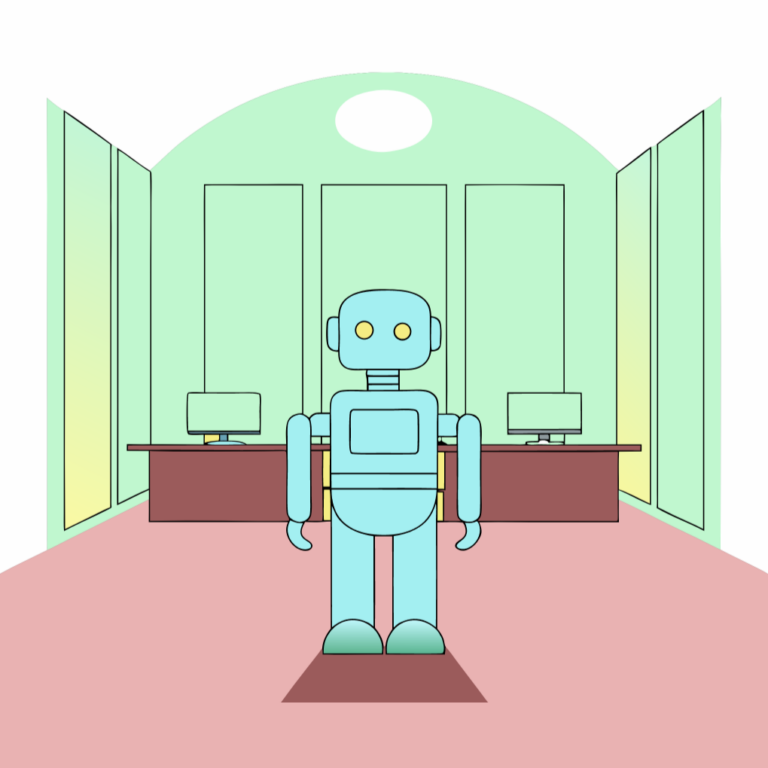About This Study
In March, we surveyed 1,000 full-time workers to determine the extent to which they utilize artificial intelligence as a stand-in for traditional managerial responsibilities. We aimed to uncover not just how many workers are turning to AI for tasks typically handled by their managers, but also the motivations behind it.
The Findings
- Millennials are the most likely generation to seek guidance from AI rather than their manager
- Men are more likely to ditch their manager for AI than women
- 2 in 5 workers are using AI to conduct their own performance reviews
1 in 5 Workers Are Ditching Their Managers for AI
The increasing adoption of artificial intelligence at work is having a significant impact on the way employees communicate with their managers. The traditional role of HR teams and managers is shifting, given that 67% of respondents admit they prefer to seek guidance from artificial intelligence tools rather than their managers. Additionally, nearly one in four workers (22.8%) report that their dependence on their managers has decreased since they began using AI, as they engage with these tools multiple times each day.
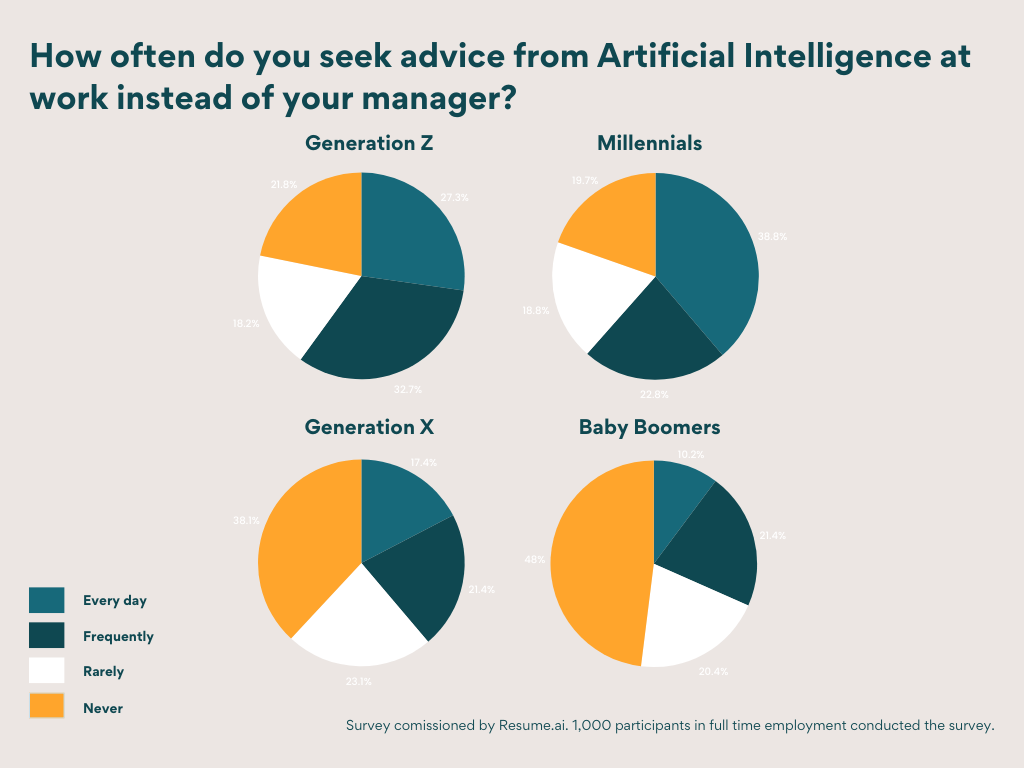
Millennials are the most likely generation to seek guidance from artificial intelligence rather than their managers. In contrast, 38% of Gen X and 48% of Baby Boomers express a preference for consulting their managers instead.
A higher percentage of men (34%) report using artificial intelligence daily rather than seeking help from managers, while only 16% of women do the same.
37% of Workers Are Using AI Instead of Managers for Their Performance Reviews
From solving technical problems to helping workers manage their workload, AI is filling in the gaps where workers feel their managers fall short. When asked what the most common uses of artificial intelligence are as replacement for managerial conversations, 61% of workers reported using it for technical problem-solving, while 52% turn to AI for help to manage and prioritizing tasks.
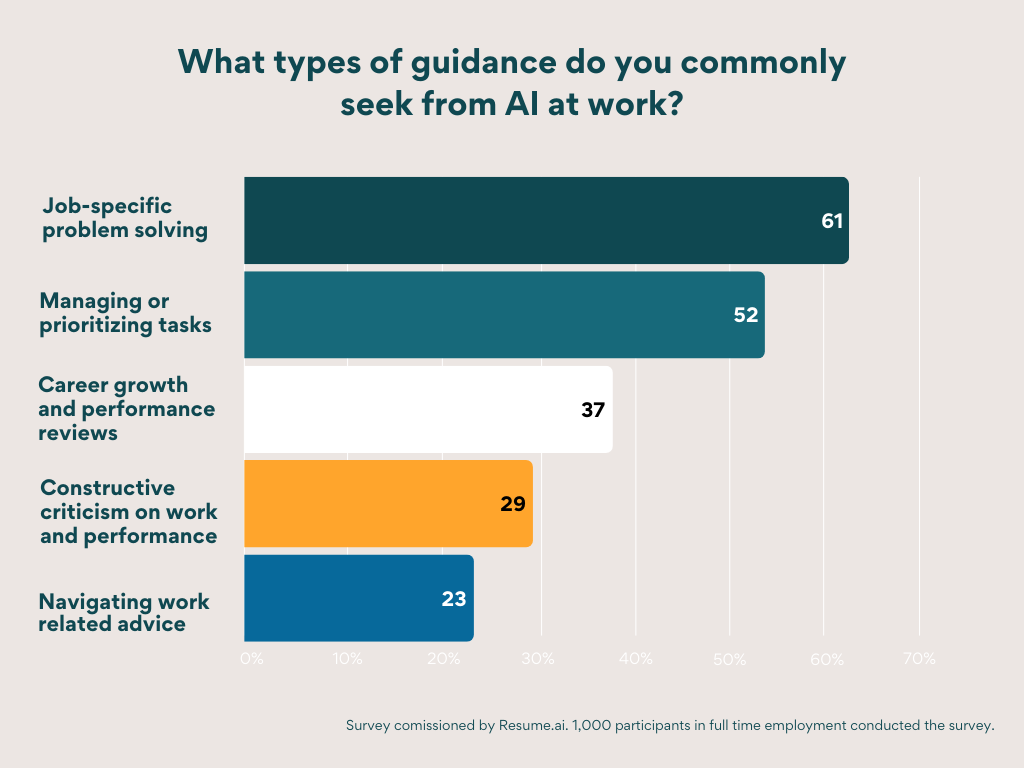
Beyond task-based support, employees use AI for professional development. While artificial intelligence is unable to replicate the emotional intelligence of humans, 37% of workers choose to use it to review their own performance reviews to aid their career growth. Additionally, 29% ask the tool for constructive criticism or feedback on their own work.
38% of Workers Turn to Artificial Intelligence to Avoid Judgment From Managers
Speed is the key motivator for workers consulting AI rather than managers. Over half (52%) of respondents indicated that AI solves their problems faster than their managers do. Moreover, 46% believe AI is more skilled and knowledgeable than their managers, and 39% feel more comfortable asking AI questions.
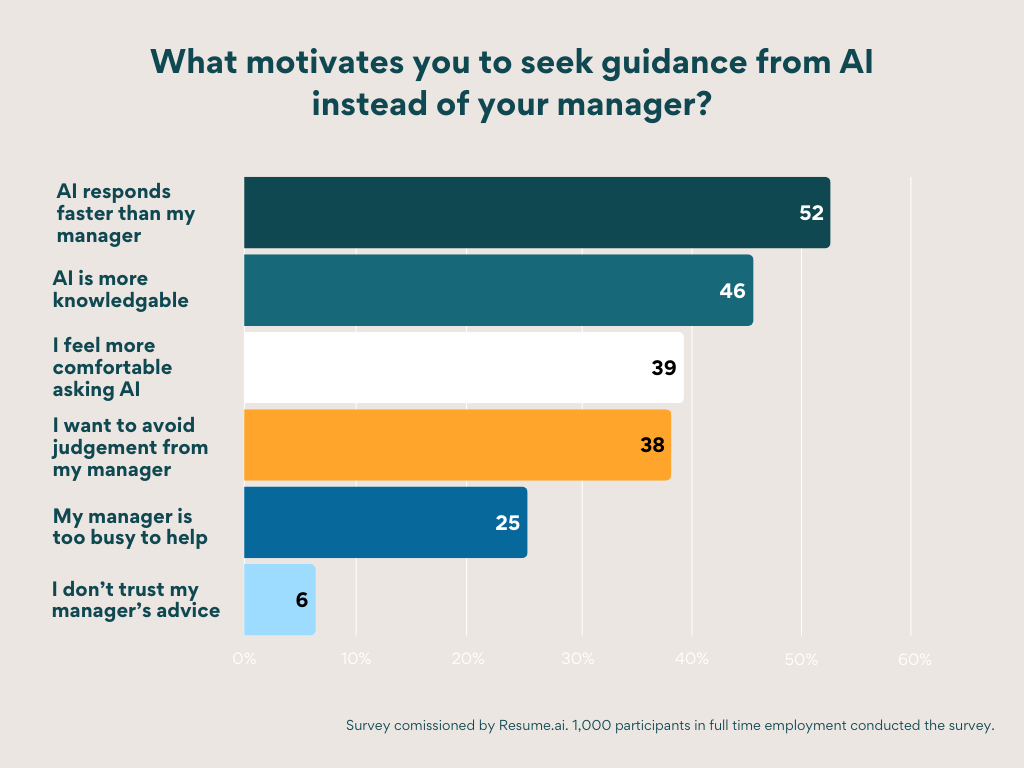
While many workers still have trust in their managers, 6% of respondents expressed they trust the answers provided by artificial intelligence more so than those given by their managers.
According to the Chartered Management Institute, 82% of managers find themselves in the role by chance, meaning they have no formal training. Could this be the reason that more employees are seeking support from AI instead of their managers?
The Most Common Reasons for Using AI
- AI responds faster than my manager – 52.4%
- AI is more skilled/knowledgeable than my manager – 45.5%
- I feel more comfortable asking AI than my manager – 39.3%
- I ask AI to avoid workplace tension or judgment – 38.2%
- My manager is too busy to help – 25.3%
- I don’t trust my manager’s advice – 6.4%
15% of Gen Z Admit They Wouldn’t Be Successful at Work Without Using AI As Their Manager
When asked how the removal of AI tools at work would impact their job, 58% of workers said it would have some impact, with 7% highlighting that it’s crucial to their success, 18% sharing that it would have a significant impact and 33% share it would have a minor impact given they use AI occasionally.
Of those who would be majorly impacted by the removal of AI tools, 59% were millennials and 15% are Generation Z.
38% of Workers Suspect Managers Rely on AI for Management Tasks
Does the lack of training for managers mean they are also relying on artificial intelligence for managerial help? While some managers are upfront with their reports about their AI use–24% of employees say their manager openly admits to using AI for managerial tasks–others are more discreet.
More than a third (38%) of workers believe their managers use artificial intelligence to help with management but don’t talk about it, suggesting a quiet dependence on technology.
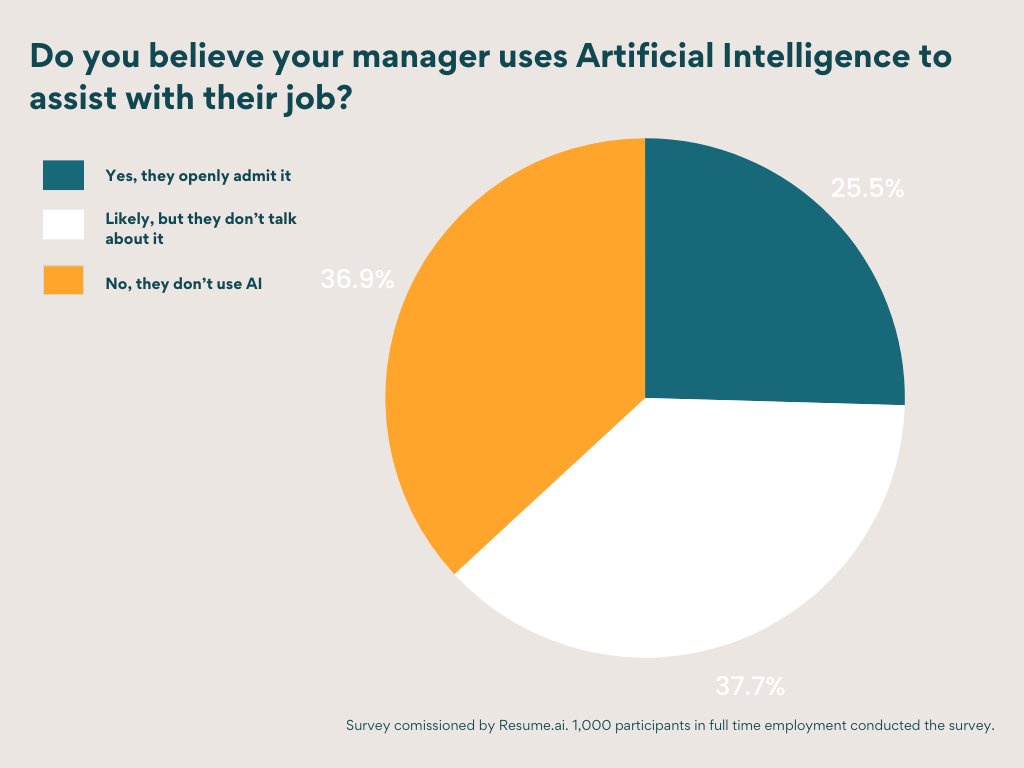
Artificial intelligence has been seen to reshape multiple elements of the workplace; not just management interactions, but also hiring processes. As more employees rely on AI for career growth, understanding the right resume skills to include when applying for your next role is essential. If you’re seeking a job, reviewing resume examples can help you optimize your application for both hiring managers and AI-driven screening tools.
Methodology
This survey was commissioned by Resume AI and conducted via Pollfish on March 27, 2025. In total, 1,000 participants in the U.S. of legal working age completed the full survey. Participants were passed through demographic filters to ensure they were in full-time employment.
To avoid bias due to uneven numbers of participants in each generation’s age group, a weighting analysis was conducted.

